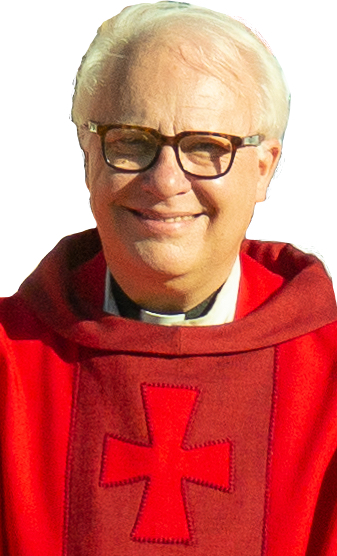In the vast city of Istanbul, close to the Bosphorus, is a street called Istiklal, which is crowded with shoppers, tourists, and sellers of roast chestnuts and pretzels, from morning till night. Barely visible from the street, beside the looming presence of the heavily guarded Russian Consulate, is the Catholic church of St. Maria Draperis. In a side chapel, on the front of the altar, is an image of a pelican feeding her young: an ancient Christian symbol of love and sacrifice. The image is mostly white on white, and unless you get up very close to it, you might not be able to distinguish the mother pelican from her young. But something you will see at once is a small dot of red in the middle of the composition. For the legend of the pelican (not supported by ornithologists, to be sure) is that she feeds her young with her own blood.
The metaphor of the pelican of course references the Christ, but is also for all of us. It poses a question: how much will we sacrifice for love? In the past weeks I have been inspired and humbled by people I have met who are sacrificing in great and small ways to serve others. The Franciscans, who are connected with this church, have welcomed me– as “the Anglican,” as the smiling brother greeted me when I arrived. And I keep meeting people who in a far deeper way are working to alleviate the suffering and difficulties of the now more than seven million refugees fleeing from the war in Ukraine. Others are striving to improve communication between ethnic and religious groups that historically have been enemies or strangers. These are not empty headed do gooders; they know that they face risks and dangers. Many governments (and religious institutions) do not want reconciliation and understanding to grow between old enemies. They do not want fear to decrease, nor do they want people to embrace sharing, let alone sacrifice. The message of the generous, loving pelican is a transgressive threat to their own plans, which are to divide, frighten, and subdue. It has always been so with those who would be tyrants.
Istanbul is an old city: for a millennium it was a Christian city, the largest Christian city in the world. Today it is one of the great cities of the Muslim world. I don’t know exactly where St. Paul crossed from Asia Minor on his way to Macedonia, after having that dream of a man imploring him to “come over and help us,” but it may well have been right here. Istanbul is a place of passage, a city mostly modern with vivid pockets of antiquity, half in Europe and half in Asia; its most famous mosque, Santa Sophia, itself a former Christian church and its very name “Istanbul” a borrowing from the Christian Greeks who once held sway here.
In a few days, after I give a lecture at a centre here run by Christians studying cultures of the Middle East, I travel on to Vienna, where Christian and Muslim armies battled in the seventeenth century. But first I am going to go back to that chapel and meditate on that dot of red in the midst of the snowy white of the pelican and her brood. Something small, yet ultimately, larger than we can even conceive.





